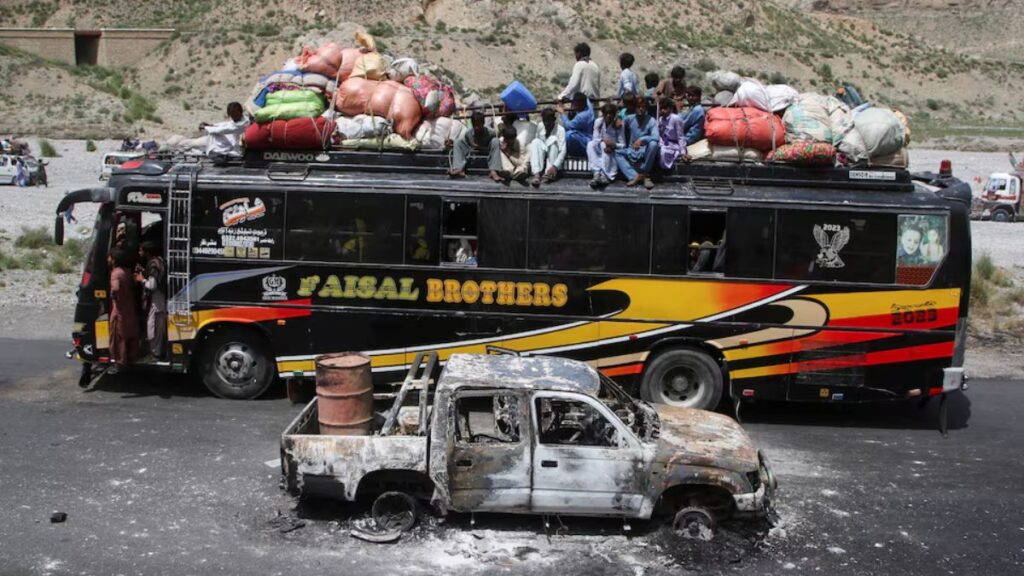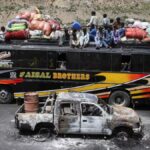
Deadly Ambush on Highway
Nine individuals were brutally abducted and shot dead by armed insurgents in Pakistan’s southwestern Balochistan province on the night of July 10. The attackers intercepted two passenger buses traveling on the Quetta‑Taftan highway, forced off nine passengers at gunpoint after verifying their identity cards, and executed them in a nearby mountainous area. Their bodies were recovered with bullet wounds the next morning. Authorities confirmed all victims belonged to Pakistan’s Punjab province.
Target Based on Ethnicity
Officials said the assailants specifically identified and targeted passengers of Punjabi origin by checking their ID cards before the execution. The ethnic profiling underscores longstanding tensions between Baloch separatist groups and people from the Punjab region, who are often perceived as symbols of state dominance in Balochistan.
Blame and Contesting Claims
No group immediately claimed responsibility, but Pakistan’s president and security officials attributed the attack to the banned Baloch Liberation Army (BLA), accusing the group of seeking to destabilize the state. The BLA, however, denied involvement, stating it was engaged in an unrelated assault on a military camp in another district that night. Both sides presented conflicting narratives over the targets’ identities, BLA claiming they targeted intelligence operatives, while authorities described them as civilian labourers.
Escalating Insurgency in Balochistan
This incident reflects the ongoing insurgency in mineral‑rich Balochistan, where separatist groups like the BLA and Balochistan Liberation Front target security forces, state infrastructure, and civilians, particularly those from Punjab or foreign entities. These groups accuse the federal government of marginalizing local populations and exploiting regional resources for the benefit of other provinces.
Response from Authorities
Pakistan’s Prime Minister condemned the killings as terrorism and pledged to bring the perpetrators to justice. Provincial leaders also denounced the ethnic violence and ordered extensive manhunts. Security forces responded promptly with investigations and recovery efforts.
Historical Echoes of Past Atrocities
The method, stopping buses, separating passengers by identity, and executing those from Punjab, echoes previous attacks in the region. Notably, in April 2024, a similar incident in Nushki led to the abduction and execution of nine Punjabi men, whose bodies were later discovered under a bridge. That attack was also linked to separatist militants targeting supposed state agents. Such incidents reveal the persistence of ethnic violence as a tactic within the insurgent strategy.
Human and Strategic Costs
The loss of civilian lives has deep ramifications, not only for the families directly affected but also in heightening fear among travellers and labourers from Punjab working in Balochistan. It also damages the region’s fragile economic environment, drawing international attention to the security crises in Pakistan’s western provinces.
Looking Ahead: Unanswered Questions
Key questions remain: will authorities definitively establish responsibility, whether the BLA or another faction, and succeed in apprehending the assailants? Will ethnic profiling continue unchecked on regional transport routes? Can policy reforms and greater regional autonomy offer a durable solution to longstanding Baloch grievances? The attack raises urgent concerns about how such acts might impact communal trust, cross‑provincial cooperation, and the viability of national cohesion.
This tragic incident is part of a broader, chronic cycle of violence in Balochistan. As separatist movements persist, civilian lives remain at risk, and the government’s response will be watched for its ability to deliver justice and prevent further such atrocities.




































Leave a Reply